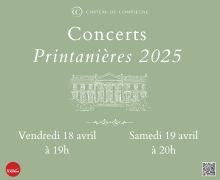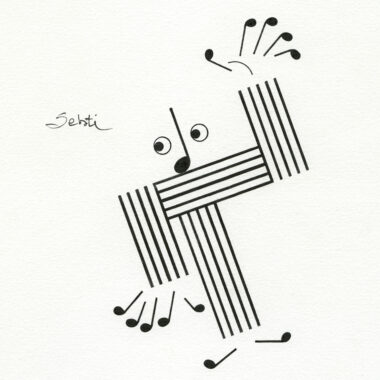Plus de détails
14.III-2014. Helsinki, Helsinki Music Center. Benjamin Britten (1913-1976): Sinfonia da Requiem, Op. 20. William Walton (1902-1983): Violin Concerto. Ralph Vaughan Williams (1872-1958): Symphony No. 6. Baiba Skride, violin. Helsinki Philharmonic Orchestra, Michael Francis, conductor.
 Although performances of British music are not entirely rare in Helsinki, an entire evening dedicated to mid-20th century British orchestral music is quite remarkable. Michael Francis, the current chief conductor of the Norrköping SO, led the Helsinki Philharmonic in this evening's program of Britten, Walton, and Vaughan Williams.
Although performances of British music are not entirely rare in Helsinki, an entire evening dedicated to mid-20th century British orchestral music is quite remarkable. Michael Francis, the current chief conductor of the Norrköping SO, led the Helsinki Philharmonic in this evening's program of Britten, Walton, and Vaughan Williams.
Britten's Sinfonia da Requiem was the opening work of this concert. Commissioned in 1940 by the Japanese government to commemorate the 2600th anniversary of the Japanese Empire, the work that Britten provided was anything but celebratory. Imposing, if not terrifying, strikes on the timpani open the work. The strings dance in a twisted lilt, accompanied by clunky harmonies. The second movement features a violent and insistent rhythm, supported by Shostakovichian galloping in the strings. The woodwinds make a clumsy attempt at finding peace in the third movement; the strings try to soar to heavenly heights, but the unresolved harmony at the climax thwarts this.
The Violin Concerto of Walton has much to enjoy but does not have quite the same level of sustained inspiration (the third movement seemed rather lengthy) as the concertos of Elgar or Britten. However, when compared to these other works, Walton does create a greater variety of musical landscapes, impressive orchestral tuttis, and perhaps even more fireworks for the soloist. A sense of restrained melancholy is also present throughout.
Skride's rich and warm tone made the violin's opening statement feel almost Elgarian. Aside from some minor intonations problems in some of the impossibly difficult solo writing in the second movement, Skride gave a convincing performance of this relatively rarely performed work.
Vaughan Williams complained that his Symphony No. 6 could just be the result of a man wanting to write a « piece of music, » as opposed to a direct response to the then recently ended second world war. While it is impossible to know exactly what the composer's true intentions were, it is also entirely plausible to view this work as a reflection of the horrors of the two world wars that the composer lived through, and the pessimism that followed.
Listeners only familiar with the Vaughan Williams of The Lark Ascending or the Tallis Fantasia were likely shocked the moment the symphony began (an analogous situation might be Copland's Connotations). A violent clash between F minor/E minor/E major opens the work, followed by swirling and turbulent strings. A typically beautiful Vaughan Williams string melody appears, but return of the work's opening disrupts this. The second movement could be described as a doom-laden march, a harbinger of some disaster, while the third movement is a tritone-based devilish dance (including some Shostakovichian xylophone writing) featuring a rather sardonic solo saxophone.
About 10 minutes of unbroken piannisimo comprise the fourth and final movement. Ghostly strings, icy harp, and distant brass create an atmosphere of near complete stillness, but with a sense of expectation, maybe anxiety. The work ends with oscillations between E minor/E-flat major; is this the nothingness of a scorched-earth landscape, or simply drifting off into a deep sleep?
From the opening timpani strikes it was immediately clear that this music is Francis' passion. There were many highlights, from the clumsy woodwinds in the Britten to the hushed strings and ominous trumpets in the Vaughan Williams. This concert was a model of intelligent programming, although some might find the Britten and Vaughan Williams to be deeply unsettling. This was possibly the best concert of the current Helsinki PO season, and further Helsinki performances of British music with Francis are eagerly awaited.
Plus de détails
14.III-2014. Helsinki, Helsinki Music Center. Benjamin Britten (1913-1976): Sinfonia da Requiem, Op. 20. William Walton (1902-1983): Violin Concerto. Ralph Vaughan Williams (1872-1958): Symphony No. 6. Baiba Skride, violin. Helsinki Philharmonic Orchestra, Michael Francis, conductor.









